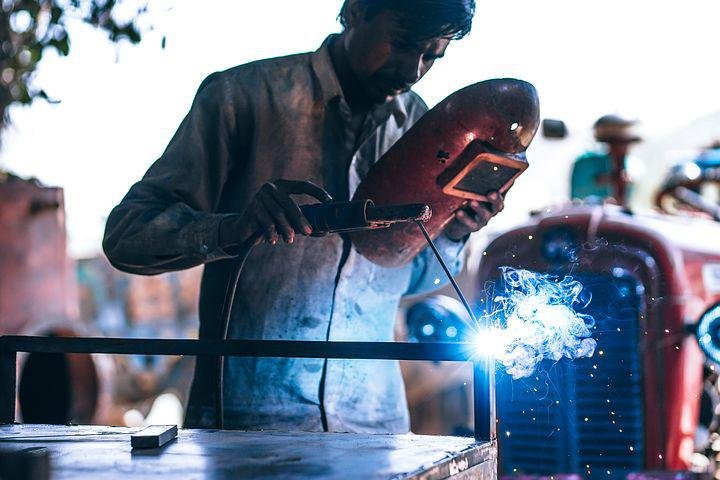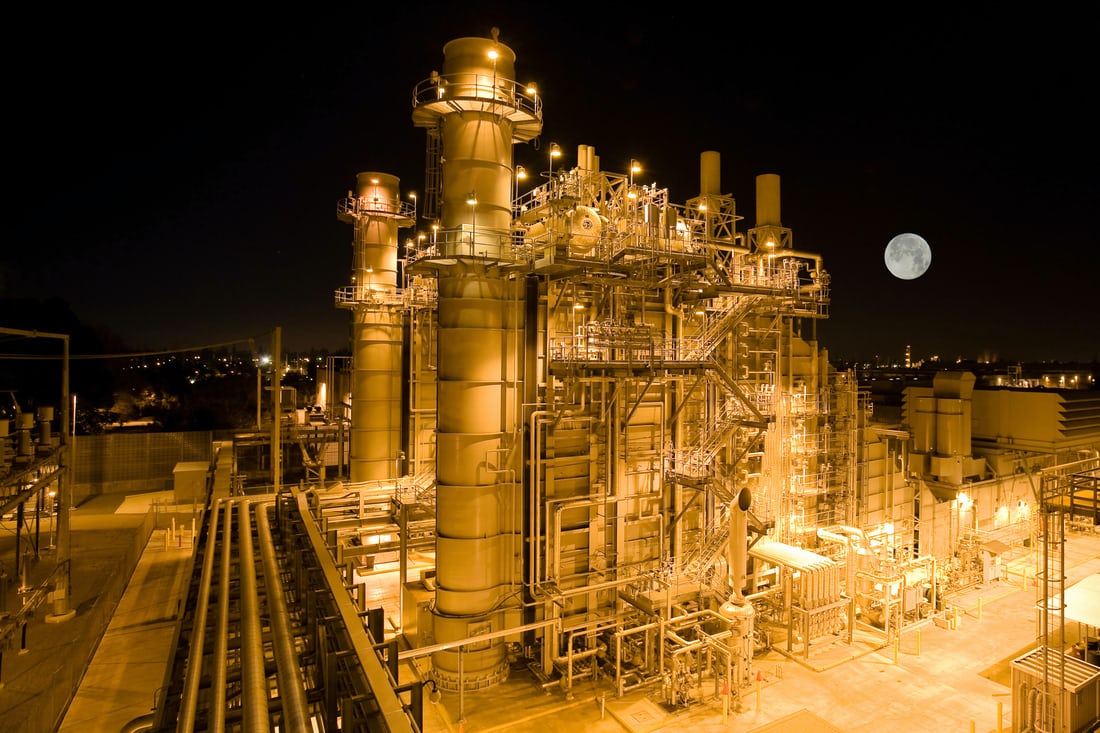Best Paying Jobs in Metal Fabrication. Metal fabrication is very much a part of the modern world. You can see it in many different industries all around you, from transportation to construction and beyond. If you enjoy working with your hands and are looking to get into this industry, then you might want to consider one of the best paying jobs in metal fabrication. These jobs include: welding engineer, machinist or fabricator, plating engineer, laser engineer, sheet metal installer and electrical beam welder.

Best Paying Jobs in Metal Fabrication
The following below are the top Best Paying Jobs in Metal Fabrication:-
Welding Engineer
Welding engineers are responsible for developing and implementing welding procedures, as well as designing, testing and approving new welding processes.
Education Requirements. A bachelor’s degree in mechanical engineering or related field is generally required to become a welder engineer; however, many employers prefer candidates with master’s degrees in these areas or an MBA (Master of Business Administration).
In addition to these academic credentials, welders may need certification from an accrediting body such as the American Welding Society (AWS) or Canadian Welding Bureau (CWB). Candidates who have passed exams offered by organizations such as ASME International can also be considered for this position if they meet all other requirements for employment in the field.
Certification Required? Many employers will require that applicants pass certifications such as AWS Certified Welding Inspector(CWI) or CWB Structural Steel Fabricator/Welder before hiring them into this role; however some companies may not require any specific type of certification but rather prefer candidates who already have experience working with metals like steel at least one year prior working somewhere else within their company structure
Usually it takes about three years after completing high school before someone can get certified through either organization mentioned above so make sure you factor this into your timeline planning when deciding whether you want work full time right outta high school vs waiting until after college where you have less responsibilities outside classes like homework assignments etc..
Metal and plastic machine worker
Metal and plastic machine workers fabricate and install metal and plastic products. They use machine tools to make parts, such as metal and plastic piping, ductwork, and other products. These workers work in a variety of industries, including construction, manufacturing, transportation.
Plating Engineer
As a plating engineer, you will be responsible for designing, installing and maintaining plating production lines. You will also be in charge of developing new methods and techniques to improve efficiency and quality control.
To become a plating engineer, it is best to have an associate’s degree in engineering or an equivalent degree from a technical school. It is also helpful if you have some experience working in industrial settings where there are production lines or any type of assembly line work.
The median salary for a plating engineer is $68,000 per year but this can vary based on location and industry type. There are many benefits to being a plating engineer including high pay as well as good job security thanks to increased demand for metal fabricators across America in recent years due to weak U.S.-China trade relations
Laser Engineer
A laser engineer designs, builds and maintains laser systems. They use high-power lasers to cut and grind materials ranging from steel to plastics and other materials. Laser engineers work with a variety of industries including aerospace, automotive and medical devices. Laser engineers may also design machines that use lasers as part of their operation.
The job of a laser engineer involves working with many different types of lasers and many different types of materials as well as working with other engineers in the design process.
Sheet Metal Installer
A sheet metal installer is responsible for installing and repairing products that are made of metal. They may install air-conditioning ductwork, exhaust systems, heat exchangers, radiators and evaporative coolers. They also install fire sprinkler and other security systems.
The work is done on the job site so you need to be comfortable working with people as well as being able to lift heavy weights (up to 50 pounds) or hold your body in awkward positions while using hand tools such as hammers, screwdrivers and wrenches.
You’ll need a high school diploma or GED plus some experience working with your hands before entering this field. You may want to take an apprenticeship program at an employer who specializes in sheet metal installations before starting out on your own because there will be a lot you won’t know when you first start working independently
Electron Beam Welder
An electron beam welder is a specialized machine that uses high-energy beams of electrons to weld metals, such as steel and aluminum. The machine is similar to a welding torch, but instead of using an arc or flame to fuse the metal together, it uses an electron beam that melts the two pieces into one solid mass.
Electron beam welding machines can be used in many different industries including shipbuilding, aerospace manufacturing and construction. They are also popular with hobbyists who want to build their own race cars or custom motorcycles from scratch without having to invest in expensive equipment such as oxyacetylene torches (which use oxygen and acetylene gas) or arc welders (which create an electric spark).
An average salary for an electron beam welder is around $30 per hour; however this depends on experience level which can vary based on factors like location within North America versus Europe/Asia Pacific region due at least partly due differences between cost-of-living costs between countries where these professionals work from home office environments versus those who work inside larger facilities with more experienced colleagues nearby willing share knowledge while learning more themselves!
Boilermaker
A boilermaker is a skilled worker who works with boilers and pressure vessels. Their job can be divided into three main areas: installation and repair of boilers, pipelines and other equipment; construction; and inspection. Boilermakers may work in boiler rooms or on ships, for example.
Boilermakers need to be physically strong so that they can lift heavy objects such as pipes or plates of steel up to 80 pounds (36 kg). They must also have good hand-eye coordination so that they can work quickly with tools like blow torches and hammers without injuring themselves or others around them. It is also important for boilermakers to be able to work well in teams because they will often work alongside other tradespeople while doing their jobs at construction sites or shipyards.
Mold Maintenance Technician
As a mold maintenance technician, you will work with mold maintenance and repair. You will also work with mold making and mold making materials, as well as inspecting molds. You will also work with other aspects of the process of creating molds that are used in metal fabrication.
You’ll be expected to have an understanding of the different processes involved in metal fabrication, including injection molding and blow-molding. In addition, it’s important to understand how plastic flows into a cavity during the injection part of this process so that you can properly inspect it when necessary. You should also know how to use tools such as calipers or micrometers for measuring parts that are too small for human eyesight alone (such as holes).
Assembler/Fabricator
If you are looking for a job that offers good pay and benefits, a good work environment, job security and work-life balance, then metal fabrication might be the right career path for you.
There are many reasons people choose to become assemblers/fabricators in the metal fabrication industry. Some people choose this as their first job after graduating from high school or college because it is an entry level position with decent pay.
Others may have been laid off from another industry and find that this type of work is available to them in their area. Assemblers/fabricators can also earn higher wages when they have more experience on the job than others who do not have specialized training yet.
Assemblers/fabricators often work at manufacturing facilities where they help create products by using equipment such as saws, welding torches or lathes (machines used to cut). They might also assemble air conditioning units or other large products made out of metal parts together before finishing them up with paint jobs so they look nice enough for consumers before being sold off into retail stores around town!
Construction superintendent (commercial)
Average salary: $47,000 to $120,000, What they do: Superintendents are responsible for overseeing the construction of residential and commercial buildings. As a superintendent, you’ll be responsible for making sure that all aspects of the project run smoothly from start to finish. You’ll also manage your team’s time and budgets, ensuring that money is spent wisely and efficiently.
The person who holds this job must know about building materials as well as construction methods involved in building projects. In addition to these skills, it’s important to have strong leadership qualities in order to ensure that everyone on your team stays motivated and focused on their tasks at hand.
What kind of education/experience do I need? Construction superintendents need at least a bachelor’s degree in civil engineering or another appropriate field such as construction management; however, some employers may prefer candidates with advanced degrees such as master’s degrees (MS/MBA).
Those who don’t have formal education but have extensive experience working in this field can sometimes get away with just having an associate degree or technical training certificate but most people will still want someone with a full-fledged bachelor’s degree because it shows that they took the initiative by going back to school after already starting their career path
Welding Inspector
Welding inspectors are responsible for inspecting welds to ensure they meet the required standards. They may also be responsible for manufacturing quality control, but this varies by company.
When you’re looking at a welding inspector job description, you’ll want to make sure that it includes some basic duties:
- Inspect welds and other metal fabrication work in order to verify conformance with specifications and standards
- Ensure that equipment and materials conform to safety requirements
Industrial Designer
An industrial designer is a person who designs products for use by people. Industrial designers are usually responsible for designing a product’s appearance, ergonomics and user interface (UI). Job responsibilities may also include:
- Creating renderings of new ideas or concepts using computer-aided design (CAD) software.
- Developing prototypes of the final product using 3D printing technology or other advanced manufacturing processes to test different materials.
- Evaluating existing products and making recommendations for improvements based on consumer feedback collected through surveys or focus groups.
The salary range of an industrial designer depends on where they work and how many years of experience they have in their field. The average annual wage was estimated at $72,790 as of May 2016 by the Bureau of Labor Statistics (BLS), but some positions can pay over $100,000 per year depending upon industry sector and geographical location within the U.S..
Machine Tool Operator
Machine tool operators are highly skilled tradespeople who have received extensive training. They work with machines that cut metal using a variety of tools and techniques, such as lasers and computer-controlled plasma cutting devices.
Machine tool operators require a postsecondary education at a vocational school, community college or technical institute. During this time, they’ll learn about different types of machine tools and their functions, as well as safety practices and preventative measures to take when working with them.
This obviously requires an investment on the part of employers in terms of money but it’s also worth noting that machine tool operators earn high wages for their efforts: $94,320 per year on average according to PayScale data (as of 2018)
Mechanical Engineer
You might know a lot about the ins and outs of engines, but you might be surprised to learn that mechanical engineers can do a lot more than just fix cars. In fact, if you’re interested in working with metal and other materials, becoming a mechanical engineer could be the perfect career for you.
Mechanical engineers work as designers on everything from airplanes to cars and even medical devices like artificial joints. They use their knowledge of physics and mathematics (along with computer modeling) to help build things that are both useful and practical for society as well as the environment and they get paid well for it.
The average salary for a senior-level mechanical engineer is $93K per year in the United States alone; this makes it one of the best paying jobs available today!
Metallurgist
A metallurgist is a scientist who studies the properties of metals. Metallurgists test samples of metal to determine how they react with heat, cold, and pressure. They also study the effects of alloying elements on different types of metals (e.g., what happens when you mix zinc and copper). Metallurgists work closely with engineers to create new alloys for specific purposes (e.g., aircraft production).
Highest Paying/ Best Paying Jobs in Metal Fabrication
If you want to make a lot of money with metal fabrication jobs, it is best to focus on one of these careers. If you want to make a lot of money with metal fabrication jobs, it is best to focus on one of these six careers. Welding engineers have the highest average salary at $80,000 per year; however, if you are willing to work in an entry-level position as a machine worker or plating engineer and take on extra projects when they come up, you can make nearly as much money as a welding engineer with less education and experience.
The chart below shows the average salary for each job title listed above:
- Welding Engineer – $80,000 per year
- Metal and Plastic Machine Worker – $50,000 per year
- Plating Engineer – $50,000 per year
- Laser Engineer – $50k-$60k annually (Entry level) (Mid Level) (Senior Level)
Conclusion
It is important to remember that a lot of these jobs are not entry-level positions. Most require years of work experience or education before you can get hired for them. It is also worth noting that some careers may have significantly lower salaries depending on where you live. For example, if you want to be a welding engineer in New York City, it would be easier to find high paying jobs than if you lived in rural Montana. Best Paying Jobs in Metal Fabrication






